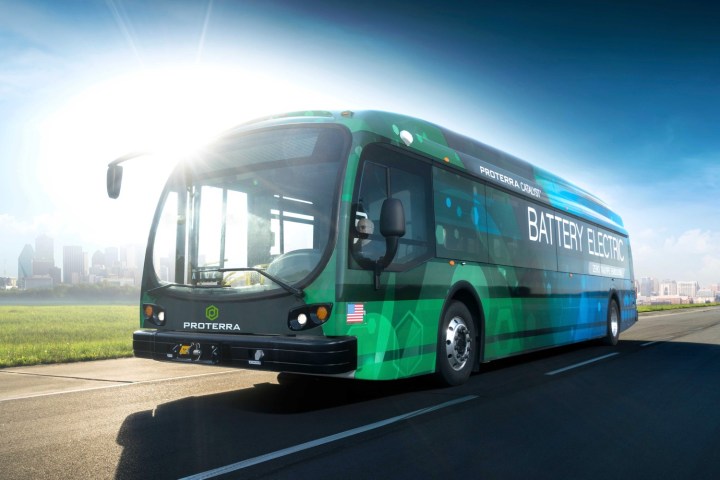
The bus is a 40-foot-long Catalyst E2 model from California-based Proterra. It’s scheduled to operate during rush hour and weekend peak hours from January 26 to February 4 on heavily-traveled routes around the Twin Cities, an MVTA press release said. The single electric bus will operate in concert with regular buses.
The transit agency expects temperatures to drop below freezing on Super Bowl Sunday, which should serve as a good test of the bus’ performance. Critics often claim that electric-vehicle battery packs don’t perform well in cold weather, but Proterra is confident that there won’t be any issues.
The Catalyst E2 has 70 sensors that monitor the health of its batteries, capturing 160 individual data streams, according to Proterra. To keep the batteries working properly, the bus features a liquid-cooling system and what Proterra calls a “proprietary state-of-charge algorithm.” The company noted that its buses routinely operate during cold winters in cities such as Park City, Utah, and Worcester, Massachusetts.
Proterra likes to push its buses to extremes. Last year, a Catalyst E2 broke a distance record for electric vehicles, traveling 1,101.2 miles on a single charge. The bus didn’t have any passengers onboard, and the record attempt was conducted on a closed course. Nonetheless, whoever thought something this size would ever hold the electric-vehicle distance record? Proterra estimates about 350 miles of range in real-world use.
Proterra isn’t the only company making electric buses, but it is among the most prolific. It claims to have sold more than 500 buses to 64 operators in 29 states. The company recently scored an order for 25 electric buses from the Los Angeles Department of Transportation, the first step in L.A.’s plan to deploy an all-electric bus fleet by 2030. While the electric cars get most of the attention, given the amount of mileage they cover every year, electric buses could significantly lower carbon emissions in cities, not to mention bring some peace and quiet to neighborhoods.


